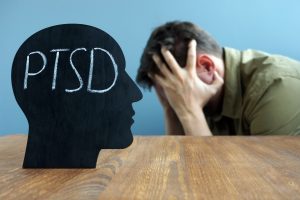Coping With PTSD After A Car Accident

Experiencing a car accident can be a traumatic event that leaves lasting emotional and psychological scars. Post-traumatic stress disorder (PTSD) is a common condition that many individuals face after such incidents, often leading to debilitating symptoms like nightmares, anxiety, and hypervigilance. How you handle PTSD is crucial for your overall health and recovery.
This article will explore effective strategies for managing and overcoming the difficulties caused by PTSD.
Seek Professional Assistance
If you find yourself experiencing PTSD symptoms following a car accident, it is essential to seek professional help. Mental health specialists in trauma, such as therapists or counsellors, can provide the guidance and support you need.
They can help you process your emotions, develop coping mechanisms, and navigate the trauma associated with the accident. Seeking professional assistance is a vital step towards your recovery.
Practice Self-Care
Engaging in self-care practices is essential for managing PTSD symptoms. Prioritize your physical health by getting adequate sleep, maintaining a healthy diet, and engaging in regular exercise.
Additionally, incorporate relaxation techniques like deep breathing exercises or meditation into your routine to reduce anxiety and promote relaxation.
Build a Support System
Building a strong support system is crucial in dealing with PTSD. Surround yourself with friends and family who can provide empathy and understanding. Share your thoughts and feelings with these trusted individuals.
Consider joining support groups or online forums where you can connect with people who have gone through similar experiences. Having a support system can provide immense comfort and aid in your healing process.
Practice Relaxation Techniques
Learning and utilizing relaxation techniques can significantly help manage PTSD symptoms. Techniques such as progressive muscle relaxation, guided visualization, mindfulness meditation, and deep breathing exercises can calm the mind and alleviate anxiety.
Gradual Exposure to Triggers
Certain sights, sounds, or situations associated with the car accident can trigger PTSD symptoms. Under the guidance of a mental health professional, gradual exposure therapy can be effective in reducing sensitivity and the impact of these triggers.
By gradually exposing yourself to the triggers in a safe and controlled environment, you can learn to manage the associated anxiety and fear.
Develop Coping Strategies
Creating effective coping mechanisms is crucial for controlling PTSD symptoms. Identify which strategies work best for you and make them a part of your daily routine. This may include activities such as journaling, engaging in creative outlets, practicing relaxation techniques, pursuing activities that foster a sense of accomplishment, or finding distractions from distressing thoughts and memories.
Educate Yourself
Increasing your knowledge about PTSD and its effects on the mind and body can empower you to understand your experiences better and develop effective coping mechanisms. Learn as much as you can about the condition, its signs and symptoms, and the available therapies.
This knowledge will enable you to take control of your recovery and make informed treatment decisions.
Conclusion
Coping with PTSD after a car accident is undoubtedly challenging, but with the right support and coping mechanisms, it is possible to regain control and overcome the symptoms. Be patient and compassionate with yourself throughout the healing process, remembering that it takes time to recover.
Take the First Step towards Recovery: Contact Our Car Accident Lawyers
At Valent Legal, we understand the hardships individuals face when dealing with PTSD after a car accident. Our experienced team of car accident lawyers can provide the assistance and guidance you need. By entrusting us with the legal processes related to your accident, you can focus solely on your PTSD recovery.
Take action today and contact our car accident lawyers at 902 443 4488 for a free consultation. Let us help you navigate the legal aspects of your situation, allowing you to prioritize your well-being and reclaim your life.






















